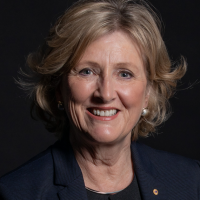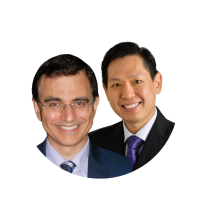Articles / Re-discovering joy at work


writer
General Practitioner; Author; Past Chairman, RACGP; Past Deputy Chancellor, Monash University
0 hours
These are activities that expand general practice knowledge, skills and attitudes, related to your scope of practice.
0 hours
These are activities that require reflection on feedback about your work.
0 hours
These are activities that use your work data to ensure quality results.
These are activities that expand general practice knowledge, skills and attitudes, related to your scope of practice.
These are activities that require reflection on feedback about your work.
These are activities that use your work data to ensure quality results.
Many GPs report high levels of burnout and are at risk of leaving the profession following adverse and traumatic experiences during the pandemic or natural disasters. Generic self-help strategies are inadequate, and it is essential to engage an independent treating doctor or mental health professional in these circumstances. In the coming weeks Professor Rowe will write a series of articles on GP Health.
There are a number of common psychological techniques to help us maintain optimism throughout challenges. Importantly, before we try to ‘rethink’ optimism, we need to understand why GPs can be prone to pessimism.
In general practice, we are trained to be hypervigilant for anything that may go wrong. We are always preparing for the worst case scenario, and unconsciously scanning the world for threats. Additionally, we are often exposed to the deeply painful dimensions of medicine: misery, trauma, injustice, anger, bullying, violence and death. We are also frequently confronted with the reality of poverty, child abuse, violence, and drug and alcohol abuse that our patients and their families experience.
As our medical careers progress, it is not surprising that we can develop a negative cognitive bias that at times can transcend reality. Conditioned to be overly risk averse, we sometimes assume the worst without evidence and when it is no longer helpful. As it can feel like there is always something to worry about, it can be difficult to remain optimistic and courageous.
To counter these common thinking traps, it can help to draw on some psychological techniques, with self-compassion.
Here are some recommended approaches to help manage negative biases and thinking:
Here are some examples of common negative thinking patterns:
Clinical Professor Leanne Rowe AM is a rural GP, co-author of ‘Every Doctor: healthier doctors=healthier patients’ and past Chairman of the RACGP and Deputy Chancellor of Monash University.
For more information about Every Doctor visit Routledge (20% discount with promo code AFL02 at checkout).


Multiple Sclerosis vs Antibody Disease – What GPs Need to Know

Using SGLT2 to Reduce Cardiovascular Death in T2D – Important Updates for GPs

Menopause and MHT: Maximising Benefits & Minimising Risks

Peripheral Arterial Disease

writer
General Practitioner; Author; Past Chairman, RACGP; Past Deputy Chancellor, Monash University

Yes
No
Listen to expert interviews.
Click to open in a new tab
Browse the latest articles from Healthed.
Once you confirm you’ve read this article you can complete a Patient Case Review to earn 0.5 hours CPD in the Reviewing Performance (RP) category.
Select ‘Confirm & learn‘ when you have read this article in its entirety and you will be taken to begin your Patient Case Review.
Menopause and MHT
Multiple sclerosis vs antibody disease
Using SGLT2 to reduce cardiovascular death in T2D
Peripheral arterial disease
